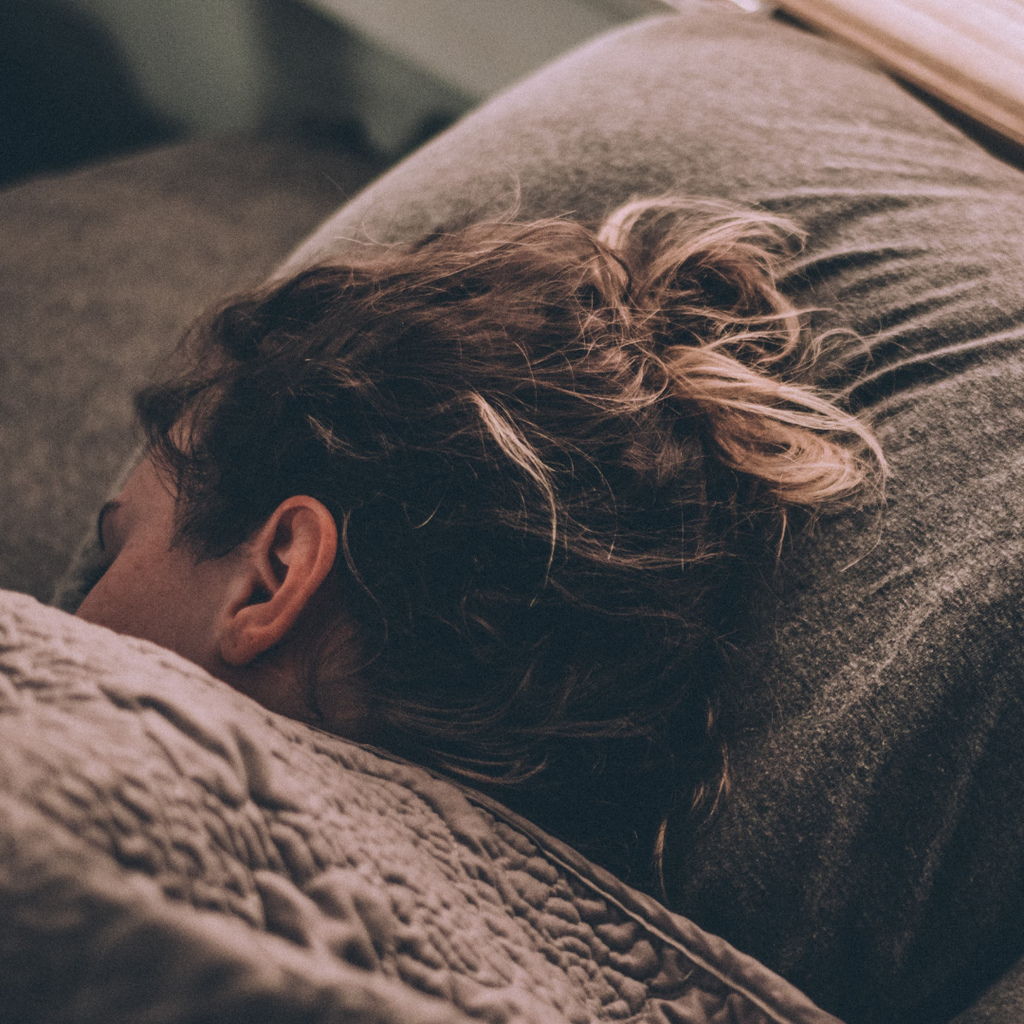5 sleep routines to look and feel your best
Written by Sleep Pod - Published on 30 March 2023

In today's world, it appears that everyone is in pursuit of a perfect night's sleep. Regrettably, Healthy People 2030 reveals that one out of every three Americans is experiencing sleep difficulties. The consequences of inadequate sleep extend beyond mere fatigue. Sleep deprivation poses genuine concerns, impacting productivity in the workplace or at school, and giving rise to public safety issues like drowsy driving. Recognizing the significance of sleep for overall health, the World Sleep Society has chosen "Sleep is Essential for Health" as the theme for this year's World Sleep Day. By practicing good sleep hygiene and establishing healthy bedtime routines, you can optimize your well-being and wake up revitalized.
Why are sleep routines crucial?
Establishing a sound sleep routine is vital for ensuring a restful night's sleep. The relationship between rest, dreams, and your brain's productivity is strongly interconnected. Additionally, your brain thrives on routines and holds a deep affinity for sleep. The two complement each other beautifully, as adhering to a consistent pre-sleep routine trains your brain to recognize when it should start feeling drowsy. By going to bed at the same time every day and following a consistent routine, your brain adjusts to a sleep-wake schedule, enabling it to establish its circadian rhythm.
Consequently, by developing healthy sleep routines, you can enhance the quality of your sleep. You will experience increased energy and productivity the following day, while avoiding the symptoms associated with sleep deprivation, such as mood disturbances, reduced attention span, heightened anxiety, or distorted perception. Inadequate sleep can even compromise your body's immune system, metabolic health, and elevate the risk of heart disease.
Now that you comprehend the significance of a well-established nighttime routine, consider these four sleep routines to set yourself on the path towards looking and feeling your best!
1. Create a Relaxing Sleep Setting
Ensuring that your sleeping environment is comfortable is crucial for achieving high-quality rest. Several factors contribute to a conducive sleep environment, and taking the time to prepare your room before bedtime can greatly enhance your chances of enjoying a restful night.
Maintaining the right temperature in your room has a significant impact on the quality of your sleep compared to other factors. Moreover, individuals often have different temperature preferences for sleep, making it challenging to find the optimal setting. Incorporating a temperature-controlled cover like the Sleep Pod can simplify achieving the ideal sleeping temperature tailored to your needs. This innovative cover has been clinically proven to improve sleep quality by up to 32%. Air temperature and humidity play a pivotal role in sleep quality, and the sleep pod's dynamic temperature regulation ensures you stay in your "goldilocks zone" throughout the night. In fact, members of Sleep pod reported feeling 11% calmer during sleep after just one week of using the Pod.
A clutter-free bedroom can also have an impact on your sleep. A tidy space can reduce stress and create a serene environment for sleeping. Dedicate some time to organize your room before bed, cultivating a chic and peaceful ambiance. When you feel more at ease in your surroundings, you'll find it easier to sleep.
In addition, the presence of sound can significantly affect your sleep environment. Wearing noise-canceling earplugs or playing white noise can effectively block out unwanted sounds that may disturb your sleep. While some sounds are unavoidable, taking control of the ones you can will contribute to a better night's rest.
2. Prioritize Personal Time Before Bed
In order to avoid accumulating sleep debt and unwind from a busy day at work and personal responsibilities, it's crucial to incorporate a nightly routine. This signals to your brain that it's time to transition into a sleep-focused state, leaving behind the stressors of the day. By dedicating time to self-care before bed, you'll wake up feeling rejuvenated and looking your best. Beauty sleep is not just a myth! When combined with a healthy nightly routine, quality rest becomes a natural beauty enhancer.
Insufficient sleep can have adverse effects on your appearance, such as dark circles under the eyes or dry skin. Moreover, it can disrupt the hair growth cycle, impeding the regrowth of fallen hairs. By actively integrating sleep routines into your regimen, such as adopting a skincare routine or using products that target hair loss before bed each night, you can maximize the resources your body has to enhance your appearance.
A sleep beauty routine is invaluable and should be tailored to your individual needs. While some individuals can dedicate time to indulgent activities like a relaxing bath, hair masks, and eye cucumbers, others may struggle to find time for even basic tasks like brushing their teeth. Start with simple steps, such as washing your face or implementing a hair care routine, and gradually add more practices as you develop a routine that works for you and is sustainable.
3. Limit Exposure to Screens
While blue light, a natural component of sunlight and emitted by electronic devices, is not harmful to the eyes, it can disrupt sleep. Therefore, it's important to be mindful of your exposure to blue light before bedtime.
One simple way to reduce blue light is by turning off screens. Giving yourself a two-hour screen-free period before going to bed allows your body to produce the necessary melatonin for sleep. Additionally, wearing blue light glasses can help filter out some of the light rays.
Using your phone at night stimulates the brain and hinders the onset of sleep. Setting your phone on "do not disturb" mode or using a sleep-focused feature can prevent intrusive notifications while you prepare for bed. It's recommended to avoid using your phone for at least 30 minutes before sleep to ensure your brain has enough time to adjust.
4. Adopt a Sleep-Friendly Diet
Maintaining healthy eating habits is crucial for a good night's sleep. Your diet can significantly impact your sleep quality, both in terms of what you eat and when you eat it.
Before bed, it's important to consume only foods that promote better sleep. Avoid consuming stimulants like caffeine close to bedtime. Instead of soda or coffee, choose soothing caffeine-free teas like chamomile, which are low in calories. Additionally, steer clear of foods that can cause indigestion or an upset stomach. Heavy, overly spicy, or acidic foods can disrupt sleep. Instead, opt for foods rich in magnesium, known to promote better sleep.
The timing of your meals also affects your sleep patterns. Maintaining a regular eating schedule throughout the day helps your body maintain its circadian rhythm, naturally making you sleepier at bedtime. Furthermore, eating too close to bedtime can disrupt this rhythm, so it's best to avoid snacking after dinner.
5. Recognizing the Value of Wind-Down Time
Although it may seem tempting to jump straight into bed after a long day, taking the time to unwind, relax, and follow your established routines is crucial. By prioritizing good sleep hygiene through these winding-down practices, you can experience optimal well-being and maintain your best appearance throughout the night.
Jul 03, 2023
Jun 21, 2023
Jun 05, 2023
May 15, 2023




